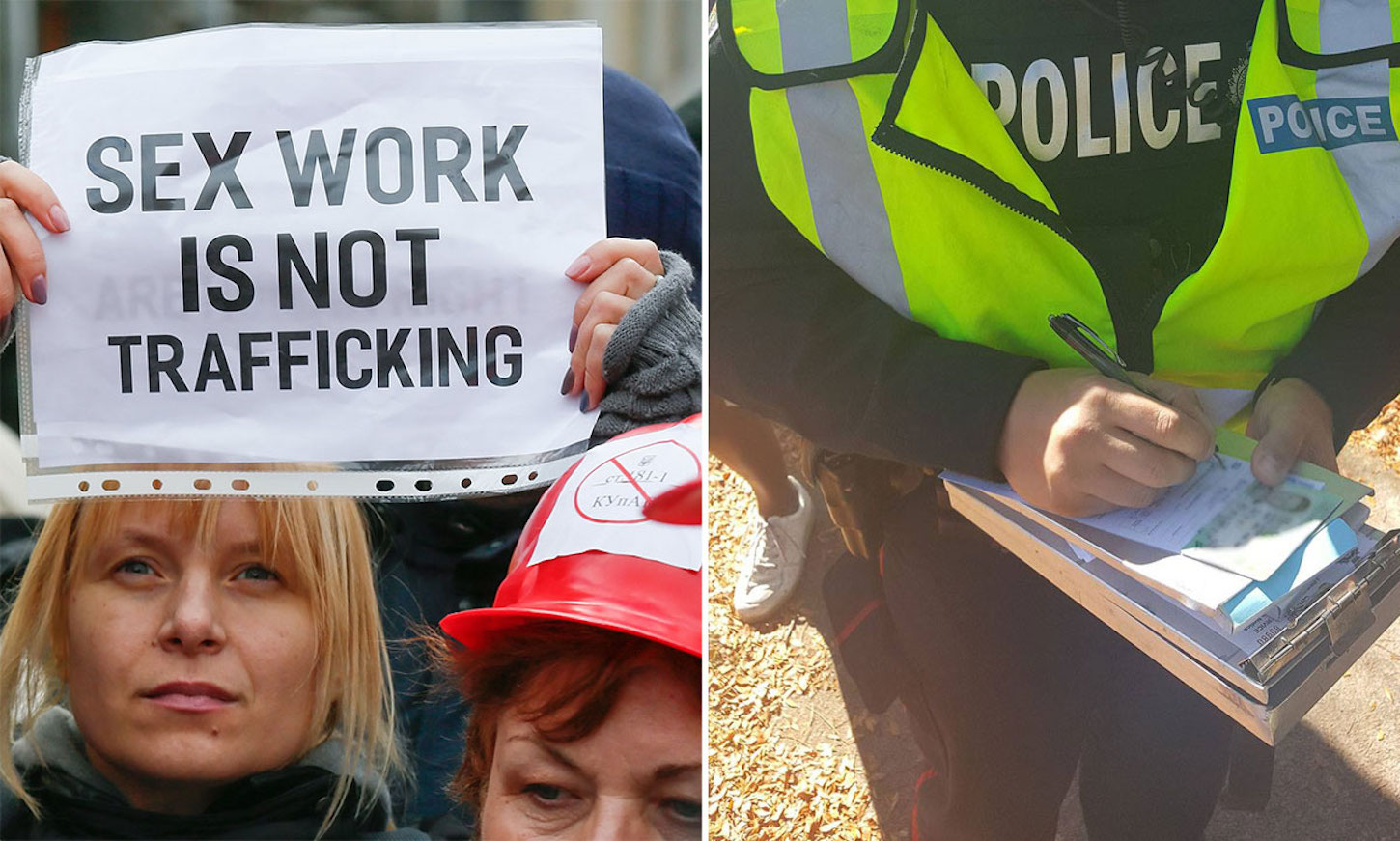This City Will Start Outing Johns. Sex Workers Think It’s a Terrible Idea

Credit to Author: Rachel Browne| Date: Tue, 26 Feb 2019 19:02:45 +0000
Letricia says sex work saved her life.
She got married young and ended up in an abusive relationship. She needed a way out.
So she started escorting across Ontario, and eventually made enough to put herself through school and support her son.
“I felt good about myself, I felt like a strong independent woman,” Letricia, who’s currently based in London, Ontario, tells VICE. “I never had that feeling of feeling bad about myself, especially at the end of the day when I was counting my $1,500.”
Letricia has asked to be identified by a pseudonym because she left the industry around 2015, and has a new job where people don’t know about her past.
“I had to hide it, and I had to come in slowly,” she says. “I don’t think I’d get fired, but obviously I would be treated differently, which is unfortunate, but that’s just the way it is.”
Sex workers have long dealt with stigma and judgment from society, and potentially risky working conditions. But Letricia says the London Police’s recent announcement that they will start publicizing the names of customers charged with buying sexual services will make things even worse, and foster violence.
It follows efforts by other police forces to crack down on so-called johns in a highly public manner ever since a 2014 law made it a crime to buy, but not sell, sex. Last summer, police in Cape Breton conducted their second mass anti-prostitution sting that netted charges against 18 men who were accused of trying to buy sexual services. As with the first operation, the police force released the names of all the men, who range from 26 to 85 years old.
“We’re livid, we’re mad,” says Leticia, who also serves as a coordinator at SafeSpace London, a drop-in centre for sex workers that also promotes the decriminalization of the industry. “They’re putting up more barriers between police and the people that are actually involved in the community.”
London Police chief John Pare told the force’s board last week that officers will publish media releases identifying johns who are charged with buying sex as “a warning to make better choices in life.”
He framed the move as a way to prevent sex trafficking.
“This is not a choice that you should be doing in purchasing sex and putting victims at the risk they’re facing,” Pare continued, adding that a john’s identity wouldn’t be released if it would compromise an investigation or identify a trafficking victim.
Letricia resents when people describe all sex workers as victims. “The only violence I experienced was in a marriage,” she says.
“We are dead against trafficking. Who isn’t? … If they really want to catch people trafficking, they should have more of an open door policy with sex workers and their clients because their clients are the ones who are going to give them the information that someone is being trafficking, or forced against their will.”
She says sex workers will be pushing back against the plan to name and shame customers.
No one from the London Police was available to speak to VICE for this story, a spokesperson said.
In 2014, the previous Conservative government implemented Bill C-36, which aimed to end the demand for sex work and protect sex workers by, in part, making it illegal to buy sex and advertise for sexual services.
While it’s common for police to release the names of people accused of crimes such as theft, assault, or homicide—and the identity of most people facing criminal charges is publicly available—not every police force in Canada enforces the criminalization of buying sex, let alone releases names of those charged with it.
“If he’s a pedophile and he’s molesting 14-year-olds, put his name up. Everybody needs to know to stay away from him,” says Letricia. “But if he’s seeing an escort and they’re two grown-ass adults, and it’s consensual sex, why would you want to ruin his life over that, or her life?”
For Kerry Porth, a former sex worker who works as a policy researcher at Pivot Legal Society in Vancouver, the outing, and the rhetoric coming from the police and some advocacy groups makes the mistake of assuming that all sex work is trafficking.
“It’s definitely a saviour mentality and discounts years of research and testimony indicating the negative impacts on sex workers of these actions,” Porth tells VICE.
And actions that target customers prevents sex workers who are in the industry by choice from taking precautions to keep themselves safe, and they may take on clients who they may not feel confident about.
“Potential clients become much more afraid to provide actual screening information to sex workers that they’re trying to book an appointment with. They don’t want to give their real name, they don’t want to call from a real number so the sex worker can verify that he is who he says he is,” Porth says.
She acknowledged that while sex trafficking and exploitation does exist, criminalizing and targeting the buyers through stings and other techniques decreases the likelihood that customers will report it to police.
“We would like [police] to develop trusting relationships with sex workers rather than playing these games and playing tricks.”
Follow Rachel on Twitter